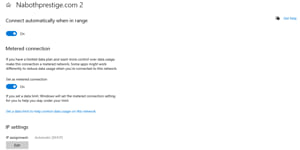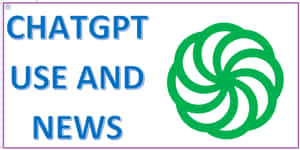The word “blog” is short for “weblog.” A blog is an online platform or website where an individual or a group of people, known as bloggers, regularly publish articles, posts, reflections, opinions, or other types of content on various topics.
Blogs can cover a wide range of themes, such as fashion, cooking, travel, technology, health, literature, and more. The articles published on a blog are typically displayed in reverse chronological order, meaning that the latest published post appears first.
Blogs have become a popular form of sharing information, opinions, and personal stories on the internet. They allow authors to express themselves and connect with a potentially large and diverse audience.
Disclaimer: I am not responsible for any damage that may occur.
Complete Guide to Monetizing Blogging Success
1. Choosing Your Niche: Selecting the right niche is a critical first step. Consider your passions, interests, and expertise. A well-defined niche helps you stand out in a crowded blogging landscape and attracts a targeted audience.
2. Setting Up Your Blog: Choose a domain name that’s relevant to your niche and easy to remember. Look for a reliable web hosting provider and set up your blog using a platform like WordPress, which offers flexibility, customization, and a range of themes.
3. Crafting Compelling Content: High-quality content is the backbone of a successful blog. Your articles should be well-researched, informative, and engaging. Create a content calendar to ensure consistency in your posting schedule.
4. SEO Strategies: Implement effective SEO practices to improve your blog’s visibility in search engine results. Conduct keyword research to identify relevant terms, optimize your content with these keywords, and focus on creating valuable, shareable content that naturally attracts backlinks.
5. Building an Audience: Promote your blog through social media platforms, online communities, and guest posting on other relevant blogs. Engage with your audience by responding to comments and encouraging discussions.
6. Monetization Methods
Advertising:
- Google AdSense: Integrate Google AdSense ads into your blog. You earn money when visitors click on these ads or view them.
- Direct Ad Sales: Once your blog gains traffic, you can directly sell ad space to businesses in your niche.
Affiliate Marketing:
- Identify products or services relevant to your niche and sign up for affiliate programs.
- Create informative and unbiased reviews, tutorials, or recommendations with affiliate links.
- Earn a commission for each sale or action generated through your affiliate links.
Sponsored Posts:
- Collaborate with brands within your niche for sponsored content.
- Clearly disclose sponsored posts to maintain transparency with your audience.
Selling Digital Products:
- Leverage your expertise to create e-books, online courses, printables, templates, or software.
- Set up an online store on your blog to sell these products.
Membership or Subscription Models:
- Offer premium content, exclusive resources, or a private community to subscribers.
- Use membership plugins to manage access and payments.
Consulting or Services:
- If you’re an expert in your niche, offer consulting services, coaching, or freelance services.
- Your blog serves as a portfolio to showcase your skills and expertise.
Physical Products:
- If relevant, consider selling physical products related to your niche.
- Set up an e-commerce section on your blog for product sales.
7. Engaging with Your Audience: Encourage interaction through comments, social media, and email newsletters. Respond promptly to feedback and questions. Building a loyal readership fosters a sense of community and trust.
8. Analytics and Optimization: Monitor your blog’s performance using tools like Google Analytics. Analyze which content is popular, which sources bring the most traffic, and make data-driven decisions to optimize your strategy.
9. Patience and Persistence: Monetizing a blog requires time and dedication. Success rarely happens overnight. Be patient, consistent, and open to adapting your strategies based on results.
10. Legal and Ethical Considerations:
- Clearly disclose affiliate links and sponsored content to maintain transparency.
- Understand copyright laws and ensure you have the right to use images and other content on your blog.
- Create a privacy policy and terms of use page to comply with data protection regulations.
Starting a successful blog and earning money from it involves a combination of passion, strategy, and consistent effort. It’s a journey that requires dedication to creating valuable content, understanding your audience, and effectively implementing various monetization methods. Remember that building a reputable blog takes time, but with perseverance and the right approach, you can turn your passion into a profitable venture.
Share on:





